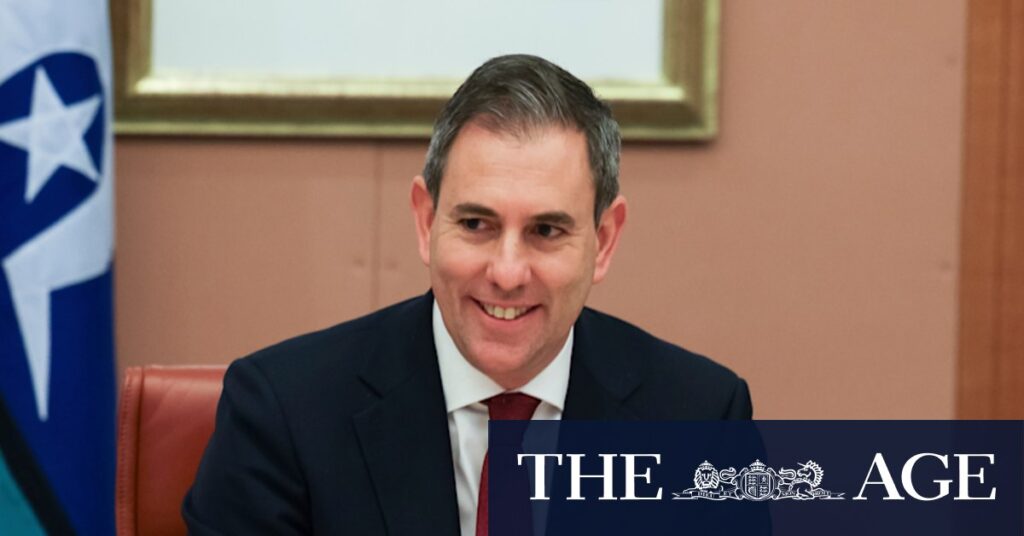
In a heated exchange behind closed doors, Treasurer Jim Chalmers and opposition spokesperson Michael O’Brien clashed over the government’s fiscal policies, highlighting deep divisions on economic strategy. The confrontation unfolded during a roundtable discussion aimed at securing union and business support for upcoming policy initiatives. While details of the argument remain undisclosed, O’Brien emerged from the meeting with a pointed challenge for Chalmers, urging him to halt what he termed a “spending spree.”
The backdrop to this confrontation is a growing criticism of the Labor government’s spending record, despite achieving two budget surpluses in its first term. Notably, former Reserve Bank governor Philip Lowe and the Coalition have voiced concerns over escalating expenditures, particularly in defense, aged care, and the National Disability Insurance Scheme (NDIS). The government has projected deficits extending into the next decade, underscoring the financial strain of its commitments.
Fiscal Strategy Under Scrutiny
Labor’s fiscal approach has been a subject of debate, especially following recent adjustments to the NDIS aimed at curbing spending. Historically, the Coalition, under the Abbott and Turnbull administrations, adhered to a “medium-term fiscal strategy” that capped tax collections at 23.9% of GDP and prioritized building budget surpluses. However, this cap was abandoned by the Morrison government during the pandemic, and Chalmers has since shifted focus to placing the budget on a “more sustainable footing.”
At the roundtable, Grattan Institute CEO Aruna Sathanapally criticized the current tax system for failing young Australians while benefiting older, wealthier citizens. Her presentation highlighted the disparities in tax treatment, particularly between retiree and working households earning similar incomes.
“A retiree household earning $100,000 through superannuation can pay less than half the tax of a working household on the same income,” Sathanapally noted.
Calls for Tax Reform
Sathanapally’s critique extended to the broader tax system, emphasizing the inequities stemming from the treatment of retirement income, wealth, and the use of trusts and private companies. She argued that these factors disproportionately burden working Australians and called for legislative action to address the dysfunction.
“We know how to fix it. The solutions are legislative, and the power sits with the federal government,” she asserted. “The problem has always been a political one: the noise that attends any suggestion that tax breaks be withdrawn.”
She further warned that without reform, the tax burden would increasingly fall on employment, exacerbating existing inequalities. One significant contributor to this imbalance is the 50% concession on capital gains, a policy introduced by the Howard government that has been linked to rising house prices.
ACTU secretary Sally McManus also weighed in, announcing an agreement with the Tech Council of Australia to develop a model for compensating content creators, signaling a collaborative approach to economic challenges.
Implications and Next Steps
The clash between Chalmers and O’Brien underscores the ongoing debate over Australia’s fiscal direction and the need for comprehensive tax reform. As the government navigates these challenges, the pressure to balance fiscal responsibility with economic growth will likely intensify.
Moving forward, the government’s ability to address these concerns while maintaining public and political support will be crucial. The roundtable discussions and subsequent policy decisions will play a pivotal role in shaping Australia’s economic landscape in the coming years.







